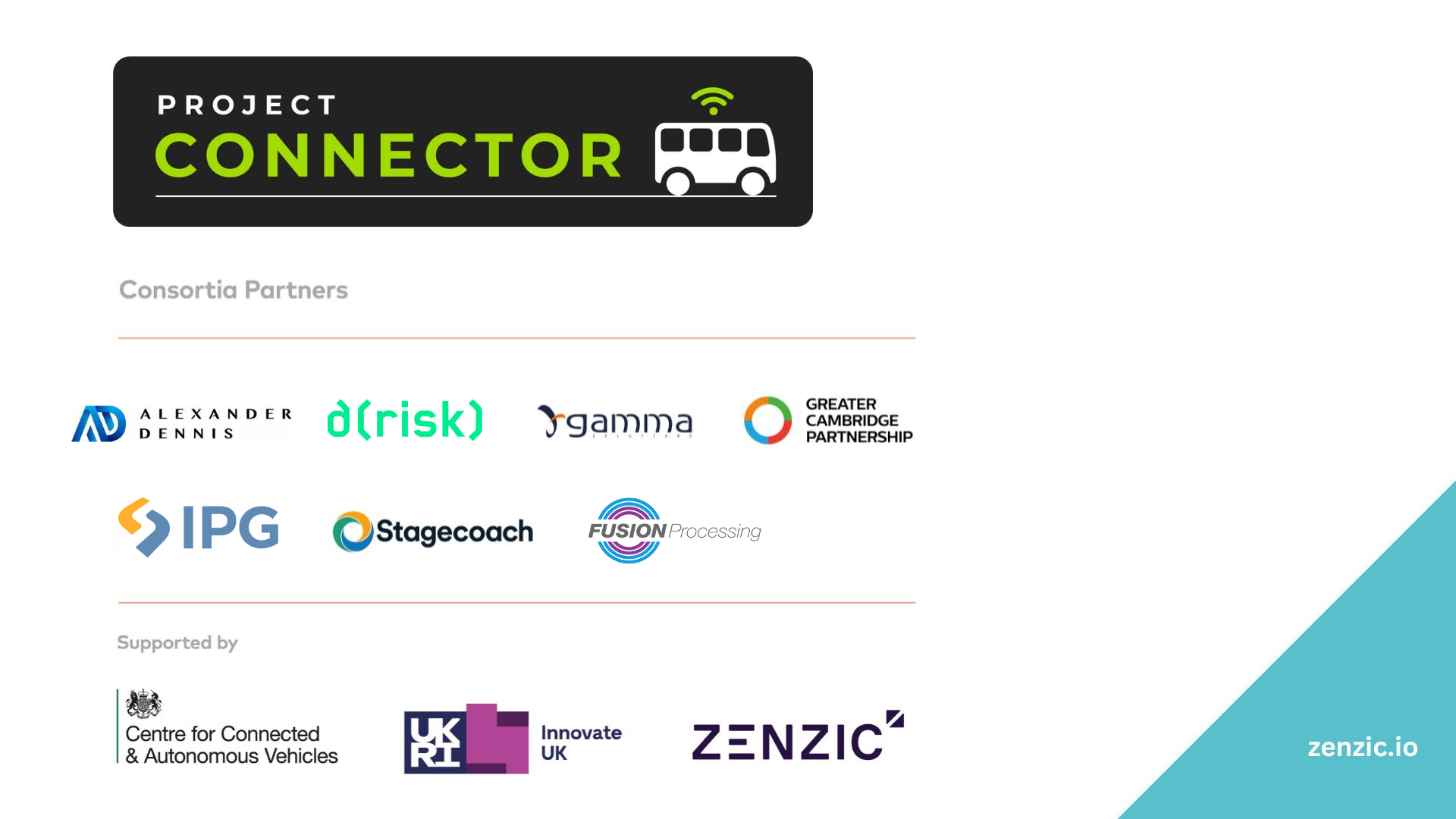The Centre for Connected and Autonomous Vehicles (CCAV) is a joint Department for Business, Energy & Industrial Strategy (BEIS) and Department for Transport (DfT) unit. Established in 2015, CCAV is an expert policy unit that is working with industry and academia to make every-day journeys safer, greener, more efficient, and more inclusive. To do this, CCAV is shaping the safe and secure introduction of self-driving vehicles and services on UK roads and leading the government’s wider Future of Transport programme.
In 2022 CCAV launched two streams of funding to invest up to £41.5 million in innovation projects. The Greater Cambridge Partnership (GCP) and partners were successful in their bids into both streams: Mass Transit and Deployment.
Read the news release that went out on 1 February 2023 to announce both projects and find out more about Mass Transit on the Cambridge Autonomous Rapid Transport project page. Both project pages will be updated as the work progresses.
Connector

Partners: Greater Cambridge Partnership, Alexander Dennis Ltd, Fusion Processing Ltd, Gamma Energy, IPG Automotive, dRISK, Stagecoach
Reduction in private car use is seen as critical in addressing these issues. To achieve this the Greater Cambridge Partnership, and partner Cambridgeshire County Council, are looking at how technologies such as autonomous vehicles can support public transport networks.
The Connector project will undertake an at-scale trial of self-driving vehicles, with four buses providing passenger services that integrate with existing public transport in Cambridge.
Services will operate from Park & Ride sites to two destinations in the city: the University of Cambridge’s West Cambridge Campus and the Cambridge Biomedical Campus. Vehicle and system development, supported by thousands of simulated scenarios and comprehensive safety assessments, is in progress virtually and will take place onsite starting at the first location in summer 2024.
Phased passenger trials will start in late summer 2024. Vehicles will initially have on-board engineers providing supervision, and safety drivers will be on-board at all times during the trials. A safety case considering the vehicle, system and domains will be prepared and reviewed by a Safety Committee to ensure an objective assessment is undertaken before services are operated. This will be reviewed and updated throughout the project.
The self-driving vehicles will use a private 5G network to support enhanced monitoring of the vehicle systems during deployment.
Key to the project is engagement with local operator Stagecoach: to run a self-driving service using its existing staff, management, ticketing and payment mechanisms.
Assessing the commercial viability and challenges of operating self-driving passenger services as a mode of transport integrating with the wider transport eco-system, contributes to several project objectives. Using an existing operator as a partner, with their associated knowledge, will provide critical insights between all project partners and provide an opportunity to continue service operations beyond the project on a commercial basis. External stakeholders will also be engaged to ensure insights are shared to help define future strategy and regulation and accelerate similar deployments elsewhere.
For more information visit the GCP’s Connector page.

